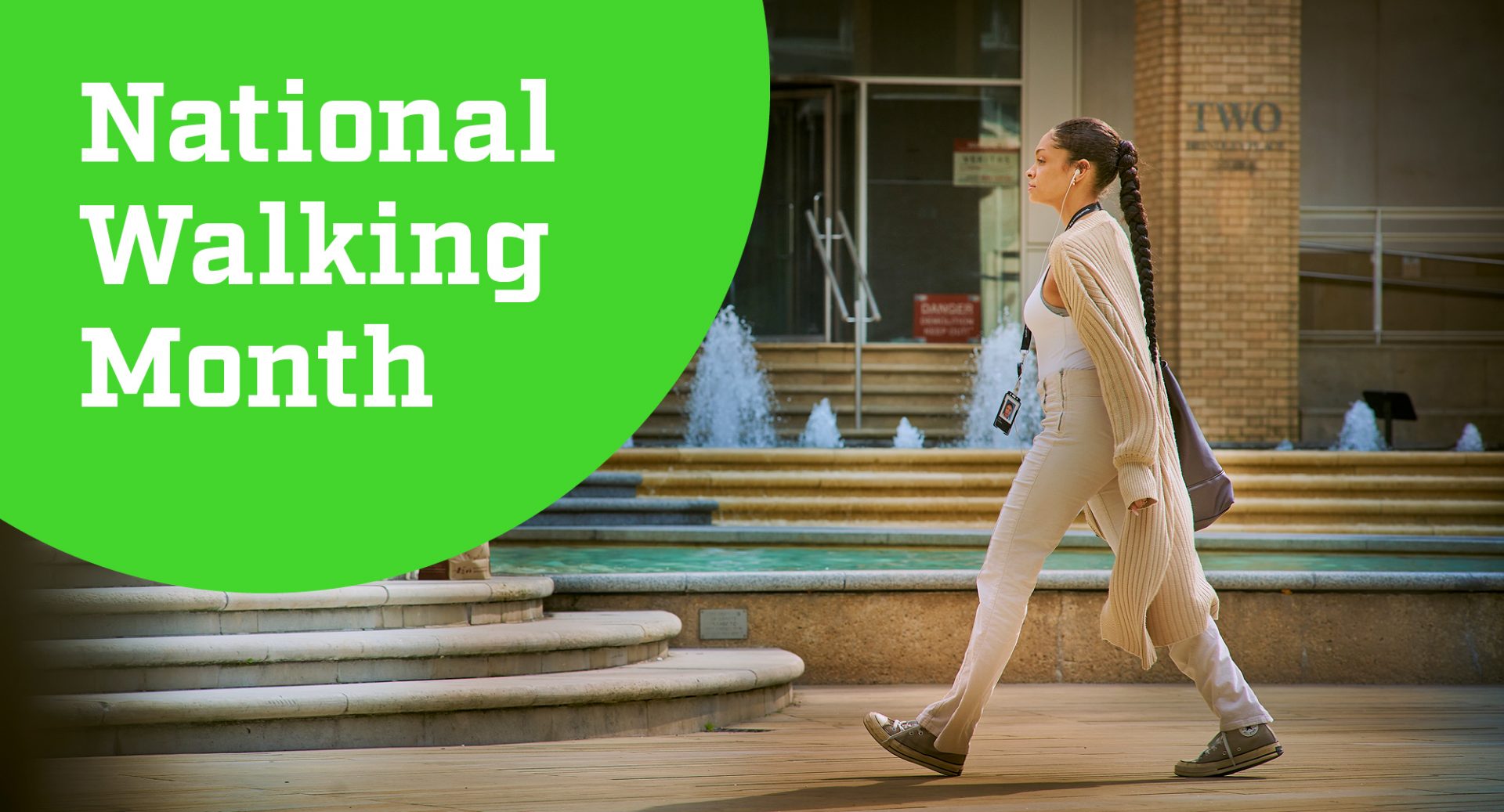May is National Walking Month, first introduced in 2007 to raise awareness about the importance of walking in order to have a healthy lifestyle.
There are lots of obvious benefits of walking, including fitness and mobility, but there are some lesser known facts too…
-
- Changes genes – A 60 minute brisk walk can change the effect of obesity-promoting genes in your body, one study showed it cut the effect of our body’s weight gaining tendencies by half.
- Curbs cravings– A 15 minute walk can curb cravings for chocolate and reduce the amount of chocolate we eat in stressful situations. Latest research confirms that walking reduces cravings and intake of most sugary snacks.
- Modifies your nervous system – Regular walking decreases emotions of anger and hostility, especially when walking around greenery and sunlight, or with a friend.
- Prevents arthritis – Walking reduces arthritis related pain, walking five to six miles a week can prevent arthritis from forming in the first place. Walking protects the joints, by lubricating them and strengthening the muscles that support them, especially the knees and hips, which are most susceptible to osteoarthritis.
- Reduces the risk of breast cancer – An American Cancer Society study found that women who walked seven or more hours a week had a 14% lower risk of breast cancer than those who walked three hours or fewer per week.
- Improves heart health – Research shows that for every 1,000 daily steps you take, you could lower your systolic blood pressure by 0.45 points. Those who walk enough to meet physical activity guidelines had a 30% lower risk of cardiovascular events and for older adults, every 500 additional steps taken daily was associated with 14% lower risk of heart disease, stroke or heart failure.
- Boosts immune function – A study of over 1,000 men and women found that those who walked at least 20 minutes a day, at least 5 days a week, had 43% fewer sick days than those who exercised once a week or less. And if they did get sick, it was for a shorter duration, and their symptoms were milder.
- Reduces stress hormones – A 2022 study published in Molecular Psychiatry found that a 60-minute walk in nature decreases activity in brain regions involved in stress processing. Walking reduces the stress hormone cortisol, just 10 minutes of walking lowers anxiety and depression and increases focus and creativity.
- Improves decision making – Brain scans of people who walked briskly for one hour three times a week showed the decision-making areas of their brains worked more efficiently than people who attended education seminars instead. So when you get your feet moving, your brain works better too!
- Lowers mortality rate – For people ages 38 to 50, 7,000 steps was associated with a lower mortality rate. In older women, just 4,400 steps a day lowered mortality rates, so if the usual 10,000 steps feels a little out of reach, remember every step counts!
There are some fantastic charities making the most of National Walking Month to raise funds for excellent causes, British Heart Foundation ‘Just Walk’ and Children’s Cancer and Leukaemia Group ‘Walk this way’ to name a few.
To help you get your steps up in Brindleyplace, or even create your own charity walk, why not follow one of our suggested routes? There are two routes to follow depending on how much time you have!
Route 1:
A 15 minute circular route taking in the City Centre Gardens.

Route 2:
Take in the sights along the canal and head through the City Centre Gardens before returning to Brindleyplace on this 18 minute route.
References
www.livingstreets.org.uk
nationaltoday.com
www.health.harvard.edu
www.prevention.com
www.acc.org
www.nejm.org
pubmed.ncbi.nlm.nih.gov
jamanetwork.com



